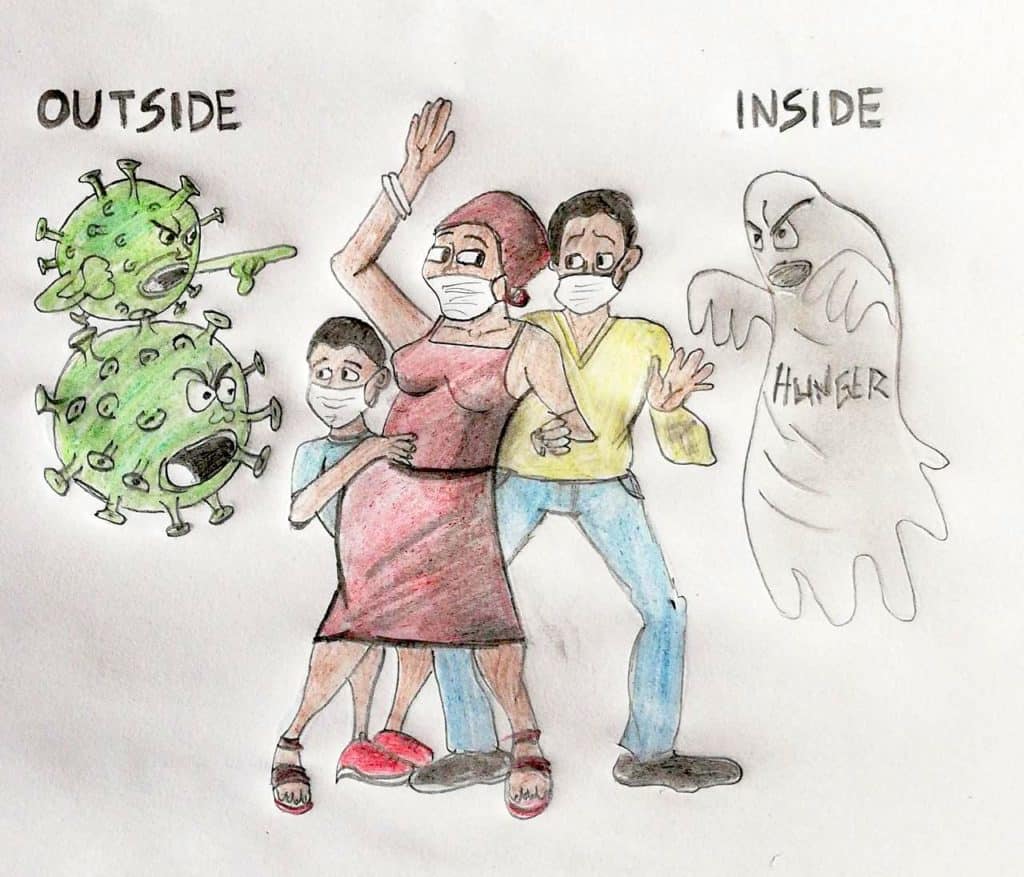Covid-19 is a public health crisis, caused by a virus. But the response to Covid-19, while necessary, is creating an economic crisis and a humanitarian crisis, which will get worse the longer the lockdown lasts. We need to confront the humanitarian crisis.

The response to Covid-19, while necessary, is creating an economic crisis and a humanitarian crisis. Image credit: Carla Bourne
The extension of the lockdown in South Africa by two weeks, while necessary, is creating an economic crisis and a humanitarian crisis, which will get worse the longer the lockdown lasts. This is according to Professor Stephen Devereux, who holds the SA/UK Research Chair in Social Protection for Food Security.
“While the decision to extend the lockdown is rightly based on minimising loss of life during this time, the impact of the lockdown is acutely felt by impoverished households,” Devereux says.
Indeed, when announcing the extension of the lockdown on 9 April, President Cyril Ramaphosa also announced a three-part strategy to slow the spread of the virus, while preventing economic collapse and hunger. The first two parts focused on the health and economic impacts of COVID-19. The third part is a programme of increased social support to protect poor and vulnerable households.
Regarding the latter, the President reported that a R40 billion Unemployment Insurance Fund (UIF) was set aside to help employees who are unable to work. However, to date, this fund has only paid out R356 million. This is less than 10% of funds paid out, an amount too low.
“One reason why payouts are so low is because Labour Centres are closed during the lockdown, so many people who need to claim UIF most urgently, such as seasonal farm workers, cannot apply,” explains Devereux. At the same time, “those who have applied for income support from the temporary employee relief scheme (TERS), such as employees of bankrupt SA Express, are struggling to convince the UIF that they have a valid claim,” Devereux adds.
Similar challenges exist for the commitment made by President Ramaphosa, to “expand the provision of food parcels.” SASSA is mandated to provide food parcels; vouchers to buy food, or cash, under its Social Relief of Distress grants. However, with their offices closed, “communities across the country are waiting with rising desperation for food parcels that have not yet arrived and the SASSA call centre hotline is almost impossible to get through,” says Devereux.
It remains unclear how those who need food parcels can apply and access these parcels while at the same time, minimising the health risk both to recipients and those making the deliveries. For Professor Devereux, one way for the government to respond to these challenges is “to treat the lockdown itself as a macroeconomic shock or a natural disaster, and respond with the urgency needed for a humanitarian crisis.”
“South Africa has a very big asset to draw on, to implement a shock-responsive approach to this crisis – the infrastructure that delivers social grants. Despite some turbulence in recent years, more than 17 million social grants are paid out every month, on time and in full, to 29% of South Africans and 60% of all children. All that is needed is an instruction to SASSA and payments to these poor and vulnerable families could be increased for the duration of the lockdown,” Devereux submits.
This is an edited version of the article originally published by The Daily Maverick. Click here to read the full article.
related Articles
New book: “Resilience and Food Security in a Food Systems Context”
Resilience and Food Security in a Food Systems Context is a recently published, open-access resource which delves into why we…
Malnutrition and hunger take hold in SA – a land of plenty...
A farm worker prunes fruit trees in The Cape, South Africa. Credits: World Bank via Flickr CC BY-NC-ND 2.0. Despite…
“We have to mobilise around the right to food”
Photo Kamaji Ogino/Pexels. The need to mobilise around the right to food (RTF) was one of the key messages from…



